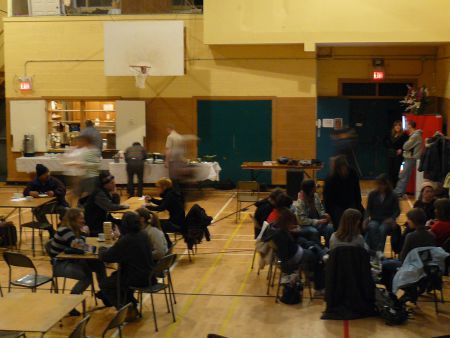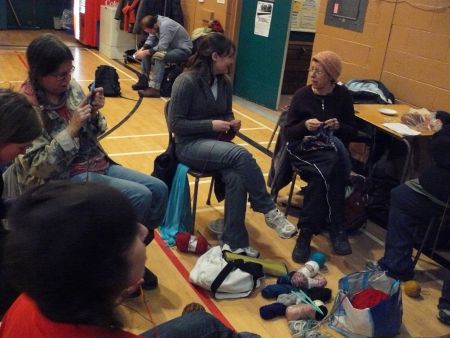HALIFAX -- When it comes to homelessness in Halifax, “People put their blinders on,” says Blair Bayers.
We’re talking over stew and bread at St Mathews Church on Barrington Street. The room is warm and bright and several tables are set up where people are eating and chatting. Bayers is speaking loudly because the seventh annual Homelessness Marathon – a 14-hour Montreal radio broadcast on poverty and homelessness – is being aired live throughout the room.
“I think [the Homelessness Marathon] is important because it raises awareness. Homelessness is a big, big problem in Halifax,” he says. Bayers is one of the founders of Street Feat, Atlantic Canada’s first street newspaper. He knows people living on the street, and has been homeless himself. Bayers says that when he hears that local shelters are full, he understands the urgency of the situation.
Nova Scotia Department of Community Services announced in the fall that it would not be reopening Pendleton Place, a “shelter of last resort” where homeless people could sleep if they were unable to access other shelters in Halifax.
“Some people don’t fit into the regular shelter system,” says Susan Lefort, the Advocacy Coordinator for the Halifax Coalition Against Poverty. Lefort gives the example of a person with active addictions, who might make women and children staying in the same shelter feel unsafe. “But people with active addictions shouldn’t have to freeze to death.”
Lefort is sitting in a circle knitting with about a dozen other people. They’re knitting hats, mittens and scarves to donate to the Out Of the Cold Emergency Winter Shelter. The emergency shelter is a community response to the closing of Pendleton Place and volunteers hope to have it open this winter.
David Parker, the Spoken Word Coordinator at CKDU and one of the organizers of the Homelessness Marathon, hopes that the all-night broadcast will give people “an opportunity to speak about their experiences [of homelessness] and to talk about how housing is a human right.”
The Homelessness Marathon was broadcast from sunset on February 23 to sunrise the next day, including a live one-hour broadcast from Halifax, featuring local anti-poverty advocates and those involved in the shelter system in Halifax.




